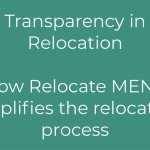HR Policy in the UAE
Human resources policies play a crucial role in shaping the employment experience of both employees and employers. In the United Arab Emirates (UAE), employers must comply with a specific set of rules and regulations regarding HR policies. In this article, we will provide a comprehensive guide on HR policies in the UAE for employers. We will also explore the various resources available on www.relocatemena.com and www.relo-global.com/en for employers to navigate the complex HR policies in the UAE.
Section 1: Understanding HR Policies in UAE
- Overview of HR policies in UAE and their importance for employers.
- Explanation of the legal framework governing HR policies in UAE.
- Critical aspects of HR policies in the UAE include recruitment, compensation, benefits, performance management, and termination.
Section 1: Understanding HR Policies in UAE
Human resources policies are essential for any organisation as they lay out the guidelines and expectations for employees and employers. In the United Arab Emirates (UAE), there are specific rules and regulations that employers must comply with when creating and implementing HR policies. Understanding the HR policies in the UAE is crucial for employers to create an effective work environment that adheres to legal requirements and promotes employee satisfaction.
Importance of HR Policies in the UAE for Employers HR policies in the UAE provides a set of guidelines that define the employment relationship between the employer and the employee. These policies not only create a structured work environment but also ensure that employees receive equal treatment and fair working conditions. By adhering to HR policies, employers can establish clear expectations for their employees, reduce the risk of legal issues, and create a positive work culture that promotes employee satisfaction.
Legal Framework Governing HR Policies in the UAE
In the UAE, the legal framework for HR policies is set out by the Labor Law, which governs the employment relationship between employers and employees. The Labor Law sets out the minimum requirements for HR policies, which include recruitment procedures, compensation and benefits, performance management, and termination procedures. Employers must ensure that their HR policies comply with the Labor Law to avoid legal repercussions.
Creating and Maintaining Comprehensive HR Policies
Nine Key Areas
The team at Relocate MENA have identified nine key areas of HR Policy that should be specifically documented, kept updated and distributed to all employees and managers.
Here are four key examples of the areas that should be covered:
UAE Recruitment HR Policy: In the UAE, employers are required to follow certain hiring practices, which include posting job openings on the Ministry of Human Resources and Emiratization (MOHRE) website, getting the employee an employment visa, and having a medical exam.
Compensation and Benefits: The Labor Law stipulates minimum wage requirements, including provisions for annual leave, sick leave, and maternity leave. Employers must also provide employees end-of-service benefits upon their employment termination.
Performance Management: Performance management is an integral aspect of HR policies in the UAE. Employers must establish a fair and transparent performance management system, which includes setting clear objectives, providing regular feedback to employees, and conducting performance evaluations.
Termination Procedures: Employers in the UAE must adhere to specific termination procedures, including providing notice to the employee, paying end-of-service benefits, and obtaining clearance certificates from the MOHRE.
Section 2: Best Practices for HR Policies in UAE
- Overview of best practices for creating and implementing HR policies in UAE.
- Discussion on the importance of diversity and inclusion in HR policies in UAE.
- Tips for effectively communicating HR policies to employees in UAE.
Section 2: Best Practices for HR Policies in UAE
HR policies play a crucial role in shaping the work environment for both employees and employers. In the United Arab Emirates (UAE), employers must comply with specific legal requirements when creating and implementing HR policies. However, beyond legal compliance, there are best practices that employers can follow to create effective and inclusive HR policies that promote employee well-being and organizational success.
Overview of Best Practices for Creating and Implementing HR Policies in UAE The following are some best practices that employers in the UAE can follow when creating and implementing HR policies:
- Review and Revise Policies Regularly: HR policies must evolve and adapt to changes in the legal and organisational landscape. Employers should regularly review their HR policies and revise them as necessary to ensure they remain relevant and effective.
- Create Policies in Consultation with Employees: Creating HR policies in consultation with employees can promote a sense of ownership and understanding of policies, leading to higher compliance rates and employee satisfaction.
- Ensure Policies are Clearly Communicated: HR policies must be effectively communicated to employees. Employers can use different mediums, such as employee handbooks, company intranets, and training sessions, to communicate policies to employees.
- Ensure HR Policies are Aligned with Organisational Culture: HR policies must align with the organisational culture to be effective. Employers must create policies that reflect the values and goals of their organisation.
Importance of Diversity and Inclusion in HR Policies in UAE Diversity and inclusion are critical considerations when creating HR policies in UAE. The UAE has a diverse workforce comprising nationals and expatriates from different cultural and religious backgrounds. HR policies must be inclusive and respectful of all employees to promote a harmonious work environment.
Employers in the UAE can promote diversity and inclusion in their HR policies by:
- Establishing Non-Discriminatory Recruitment Procedures: Recruitment procedures should be non-discriminatory, and employers should not base recruitment decisions on gender, race, religion, or nationality.
- Implementing Inclusive Policies: HR policies must be inclusive and respectful of all employees. Employers can create policies that promote cultural awareness and respect for diversity.
- Providing Training and Development Opportunities: Employers can promote diversity and inclusion by providing training and development opportunities to employees that promote cultural awareness and inclusion.
Tips for Effectively Communicating HR Policies to Employees in UAE
Effectively communicating HR policies to employees is critical for ensuring compliance and promoting employee satisfaction. Employers in the UAE can communicate HR policies effectively by:
1. Providing Written Policies: Written policies should be provided to employees in a language they understand. Employers can translate policies into different languages if necessary.
2. Conducting Training Sessions: Employers can conduct training sessions to educate employees about HR policies and answer any questions they may have.
3. Providing Regular Updates: Employers should update employees on changes to HR policies. Employers can use company newsletters, email communications, or staff meetings to communicate policy changes.
Leveraging Relocate MENA for Creating and Updating HR Policies
As organizations in the UAE navigate the intricacies of HR policies, Relocate MENA emerges as an indispensable partner for both establishing new HR frameworks and updating existing policies. Our expertise not only encompasses the essential aspects of HR management but extends to crafting policies that are tailor-made to meet the unique requirements and challenges of businesses operating in the UAE. Here’s how Relocate MENA and our team can serve as your guide in this critical endeavor.
Consultation on HR Policy Creation from Scratch
For businesses at the genesis of their HR policy journey, Relocate MENA offers comprehensive consultation services to build your HR framework from the ground up. Our approach begins with an in-depth analysis of your organization’s needs, culture, and goals, coupled with a thorough understanding of the UAE’s legal landscape. This dual focus ensures that the HR policies we help devise are not only legally compliant but also aligned with your organizational ethos.
Our team, with over 40 years of combined experience in relocation and HR management, brings a wealth of knowledge to the table. We assist in crafting the nine essential sections of HR policy required in the UAE, including recruitment, compensation, benefits, performance management, employee relations, health and safety, grievance and disciplinary procedures, termination processes, and diversity and inclusion practices. Our goal is to create a robust HR policy framework that fosters a positive work environment and minimises legal risks.
Updating Existing HR Policies
For organisations looking to refresh or update their existing HR policies, Relocate MENA provides a meticulous policy review service. Our experts will examine your current HR policies in detail, identify areas that require updates due to changes in legislation or organisational growth, and recommend modifications to ensure ongoing compliance and efficiency.
Updating HR policies is not merely about legal compliance; it’s also an opportunity to enhance employee engagement, reflect changes in organisational culture, and integrate modern HR best practices. Our team offers insights into the latest trends in HR management, ensuring your policies are not just current but also competitive and conducive to attracting and retaining top talent.
Employers in the UAE must develop comprehensive HR policies covering recruitment, compensation and benefits, performance management, termination procedures, and diversity and inclusion. These policies should align with the UAE Labour Law and promote a positive work environment. It's essential for businesses to consult with HR experts like Relocate MENA to ensure compliance and effectiveness in their HR strategy.
Compliance with UAE Labour Law requires a thorough understanding of legal requirements related to recruitment, wages, benefits, and employee rights. Relocate MENA offers expert consultation services to help your company develop and review HR policies, ensuring they meet all legal standards and adapt to legislative changes, fostering a legally compliant and supportive workplace.
Embracing diversity and inclusion in HR policies is crucial in the UAE's multicultural work environment. It promotes equality, respects cultural differences, and enhances team collaboration. Implementing non-discriminatory recruitment procedures and inclusive workplace practices can significantly improve employee satisfaction and retention, contributing to organizational success.
HR policies in the UAE should be reviewed and updated regularly to reflect changes in labour laws, organizational growth, and shifts in workplace dynamics. Relocate MENA recommends conducting annual reviews or more frequently if there are significant legal updates or organizational changes. Staying current with HR policies helps mitigate legal risks and supports a dynamic, evolving workplace culture.
Relocate MENA specializes in providing comprehensive support to businesses in the UAE for developing and writing HR policies tailored to their specific needs. Our expert team, with over 40 years of combined experience in the industry, offers a range of services to ensure your HR policies are not only compliant with UAE Labour Law but also aligned with best practices and your company’s unique culture. Here’s how we can help:
📞 Do you need assistance building your HR Policies in the UAE so you’re compliant? Get in touch with our team to find out how we can help you.









